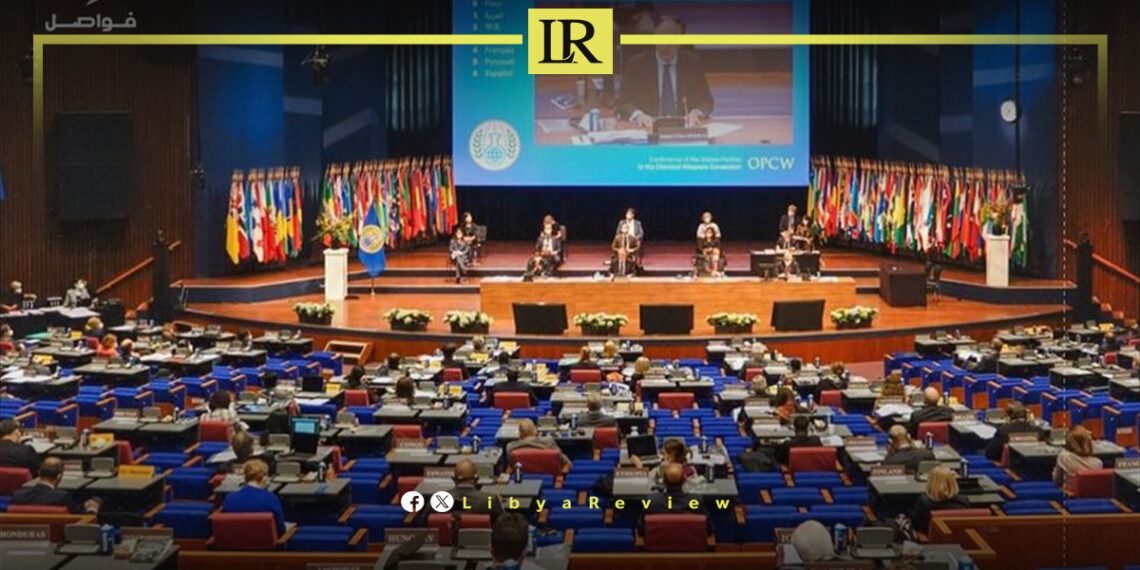Libya is taking part in the 29th session of the Conference of the States Parties to the Chemical Weapons Convention, which kicked off today in The Hague and will continue for four days.
The Libyan delegation is led by Adel Omar, Libya’s Permanent Representative to the Organization, and includes representatives from the National Authority responsible for implementing the Convention.
The conference will discuss the implementation of the Chemical Weapons Convention, adopt the report of the Director-General of the Technical Secretariat, and review the execution of decisions and recommendations from previous sessions.
The Conference is held annually, while the Executive Council of the Organization convenes three times a year, in addition to other meetings related to the activities of the States Parties.
Libya has been in chaos since a NATO-backed uprising toppled longtime leader Muammar Gaddafi in 2011. The county has for years been split between rival administrations.
Libya’s economy, heavily reliant on oil, has suffered due to the ongoing conflict. The instability has led to fluctuations in oil production and prices, impacting the global oil market and Libya’s economy.
The conflict has led to a significant humanitarian crisis in Libya, with thousands of people killed, and many more displaced. Migrants and refugees using Libya as a transit point to Europe have also faced dire conditions.
The planned elections for December 2021 were delayed due to disagreements over election laws and the eligibility of certain candidates. This delay has raised concerns about the feasibility of a peaceful political transition.
Despite the ceasefire, security remains a significant concern with sporadic fighting and the presence of mercenaries and foreign fighters. The unification of the military and the removal of foreign forces are crucial challenges.


